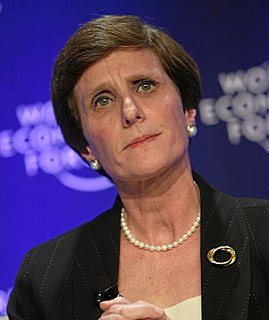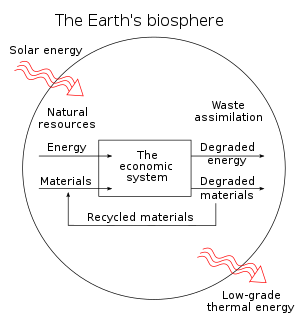A Quote by Barack Obama
This is the moment when we must build on the wealth that open markets have created, and share its benefits more equitably. Trade has been a cornerstone of our growth and global development. But we will not be able to sustain this growth if it favors the few, and not the many.
Related Quotes
For equity markets, the combination of low interest rates, strong economic growth and low inflation has proved very beneficial, with global share markets rising solidly in each of the past three years. This has been underpinned by strong growth in profits so that, notwithstanding the rise in share prices, P/E ratios have been declining on average.
To build and sustain brands people love and trust, one must focus-not only on today but also on tomorrow. It's not easy...but balancing the short and long term is key to delivering sustainable, profitable growth-growth that is good for our shareholders but also good for our consumers, our employees, our business partners, the communities where we live and work, and the planet we inhabit
The government must nurture an eco-system where the economy is primed for growth; and growth promotes all-rounddevelopment. Where development is employment-generating ; and employment is enabled by skills. Where skills are synced with production; and production is benchmarked to quality. Where quality meets global standards; and meeting global standards drives prosperity. Most importantly, this prosperity is for the welfare of all. That is my concept ofeconomic good governance and all round development.
[Barack] Obama, for example, he has not given up on cap-and-trade. Now, he has not been able to pass cap-and-trade, but cap-and-trade is all about redistribution of wealth in a global basis - taking money out of this country and giving it to third-world countries on the other end of the ocean. And that is redistribution of wealth in a global basis. It's fundamental Marxism.
Even if we could grow our way out of the crisis and delay the inevitable and painful reconciliation of virtual and real wealth, there is the question of whether this would be a wise thing to do. Marginal costs of additional growth in rich countries, such as global warming, biodiversity loss and roadways choked with cars, now likely exceed marginal benefits of a little extra consumption. The end result is that promoting further economic growth makes us poorer, not richer.
In pursuing economic growth, India and the United States share similar values and similar challenges. We understand that the global economy is here to stay. To keep growing and leading the world in innovation and opportunity, the United States and India must trade freely, openly, and according to the principles of the global marketplace.


































